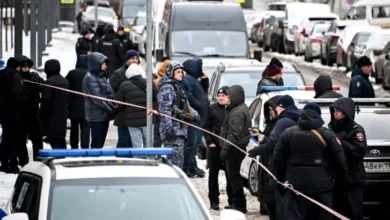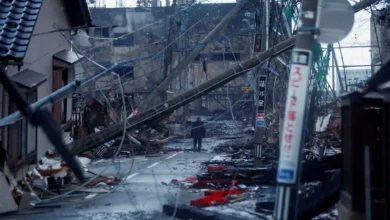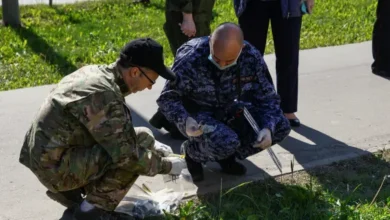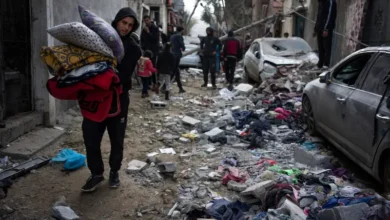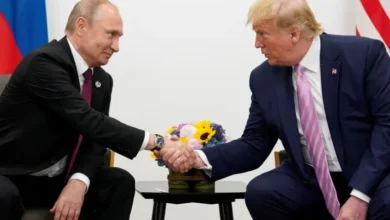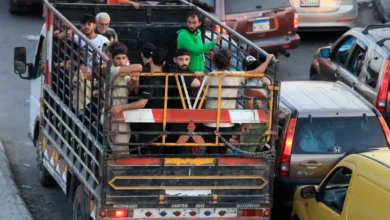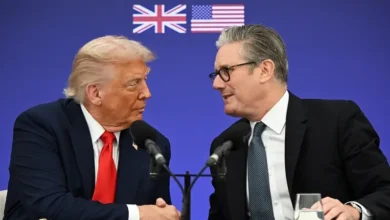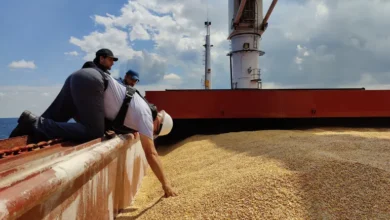Israeli historian Ilan Pappe: ‘This is the last phase of Zionism’
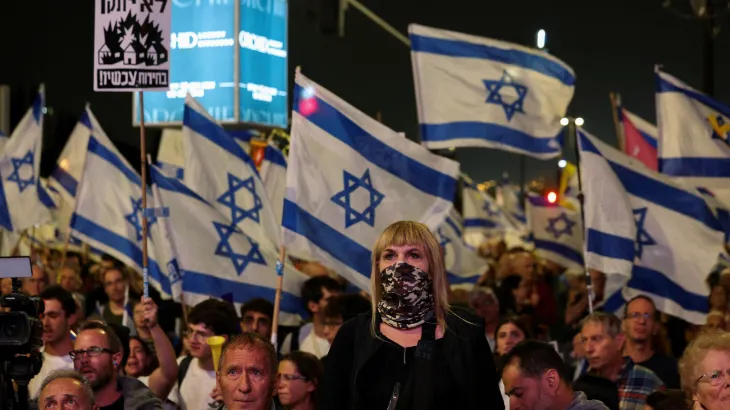
On a freezing Saturday morning in Copenhagen, Ilan Pappe warmed up in a cinema hall, chatting and joking in fluent Arabic with one of the organisers of a conference he was soon to address between sips of black coffee from a paper cup.
Unlike other Israelis, Pappe said, he learned the language “of the colonised” by spending time in Palestine, surrounding himself with Palestinian friends, and taking formal Arabic lessons.
Hundreds of academics, officials, international rights activists and everyday Danes aghast at Israel’s genocide against Palestinians in Gaza attended the event in the Danish capital, hosted by the European Palestinian Network.
The group was founded recently, and its members include Danes of Palestinian heritage.
Pappe later told the audience that since the outbreak of Israel’s latest war on Gaza, he has been shocked by Europe’s response.
“I share with a lot of people a surprise at the European position,” he said on stage. “Europe, that claims to be a model of civilisation, ignored the most televised genocide of modern times.”
On the sidelines, Al Jazeera interviewed 70-year-old Pappe, a leading Israeli historian, author and professor who has spent much of his life fighting for Palestinian rights. We asked him about Zionism, solidarity, and what he thinks a shifting American political landscape means for Gaza.
Al Jazeera: You have long said that the tools of Zionism, the nationalist, political ideology that called for the creation of a Jewish state, included capturing land and evictions. For the past 15 months, Gaza has endured daily mass killings. What stage of Zionism are we witnessing?
Ilan Pappe: We are in a state that one can define as neo-Zionist. The old values of Zionism are now more extreme, [in] far more aggressive form than they were before, trying to achieve in a short time what the previous generation of Zionists were trying to achieve in [a] much longer, more, incremental, gradual way.
This is an attempt by a new leadership of Zionism to complete the work that they started in 1948, namely of taking over officially the whole of historical Palestine and getting rid of as many Palestinians as possible and in the same process, and [this is] something new, creating a new Israeli empire that is either feared or respected by its neighbours – and therefore can even expand territorially beyond the borders of mandatory or historical Palestine.
Historically, I’m willing to say with some caution that this is the last phase of Zionism. Historically, such developments in ideological movements, whether they are colonials or empires, it’s usually the final chapter [that is] the ruthless one, the most ambitious one. And then it’s too much and then they fall and collapse.
Al Jazeera: We are days away from a new political landscape as Donald Trump heads to the White House for a second time. He has an even louder voice on social media with the tech billionaire and X owner Elon Musk, who lauds Israeli policies and its military, among the senior figures of his administration. How do you see the presidency influencing Israel? Will the war on Gaza continue?
Pappe: It’s very difficult to see anything positive during the second Trump term in office and with his associations with Elon Musk.
The future of Israel and Zionism is connected to the future of America.
I don’t think all the Americans are supporters of Trump. I don’t think all the Americans are supporters of Elon Musk.
[But] I’m afraid there is not much that can be done in the next two or three years.The only good news is that populist leaders like [US President-elect Donald] Trump and nutcases like Elon Musk are not very capable. They are going to bring down with them the American economy and the American international standing, so it will end badly for America if these kind of personalities are going to lead it.
In the long run, I think it can lead to less involvement by the United States in the Middle East. And for me, a scenario in which you have minimal American involvement is a positive scenario.
We need international intervention not only in Palestine but for the whole Arab world, but it has to come from the Global South and not from the Global North. The Global North has left such a legacy that very few people would regard anyone from the Global North as an honest broker. I’m very worried about the short term, I don’t want to be misunderstood. I cannot see any forces stopping the short-term disasters that are awaiting us.
When I see a wider perspective, I think we are at the end of a very bad chapter in humanity, not the beginning of a bad chapter.
Al Jazeera: Currently, there are ceasefire negotiations. When do you expect Palestine will enjoy peace?
Pappe: I don’t know, but I do think that even a ceasefire in Gaza is not the end unfortunately, because of the genocide. Hopefully, there will be enough power to if not stop it, at least tame it or limit it.
